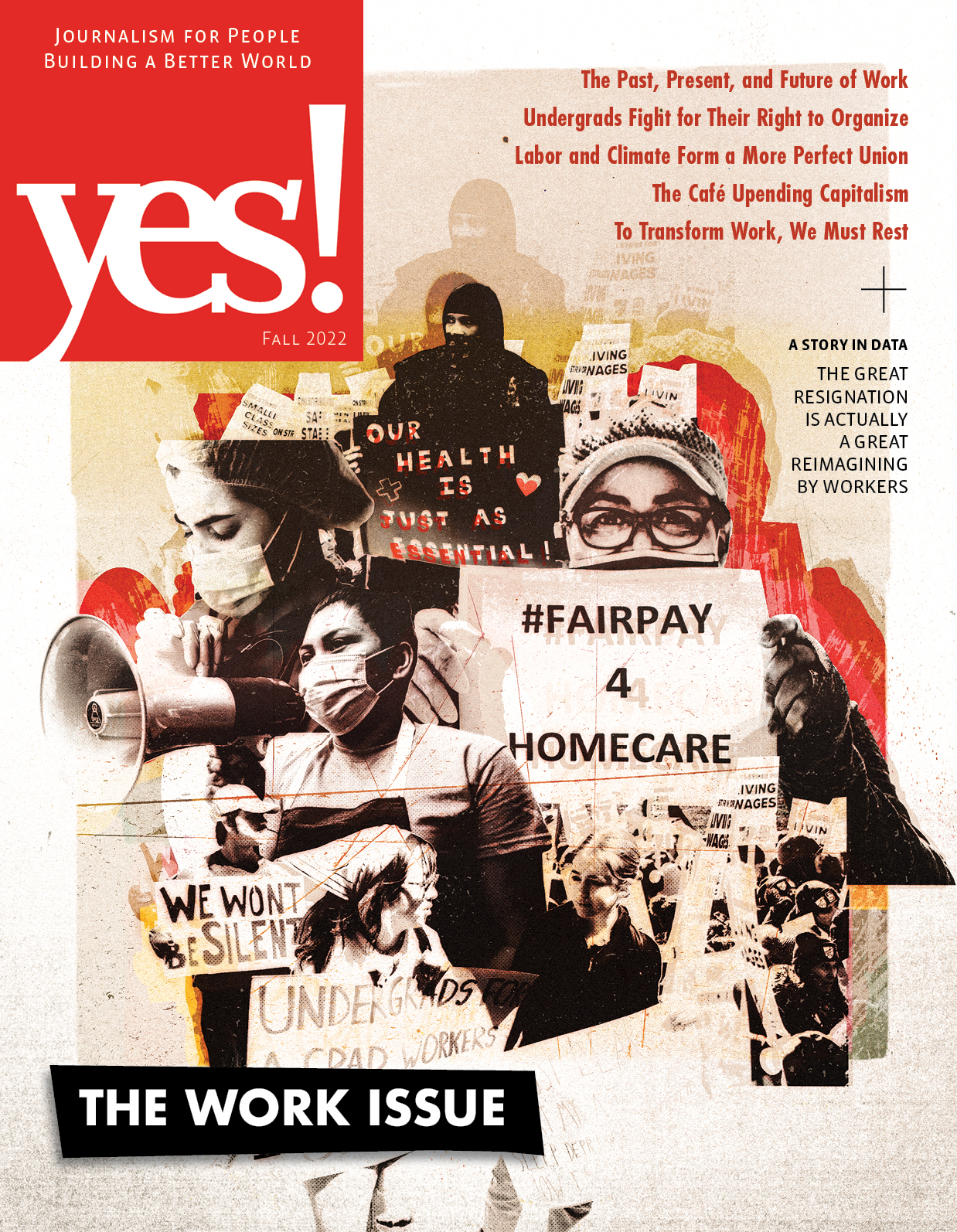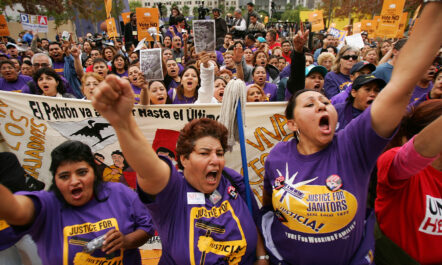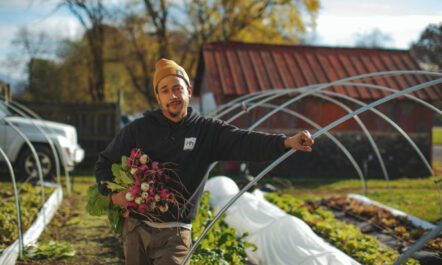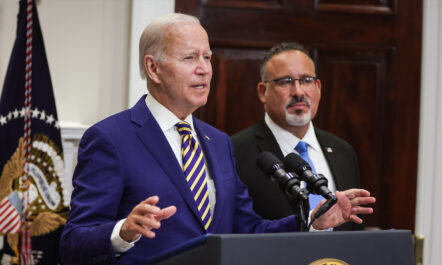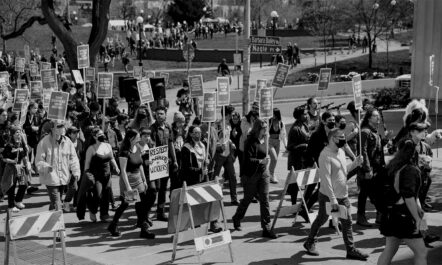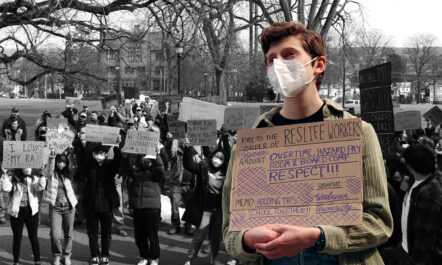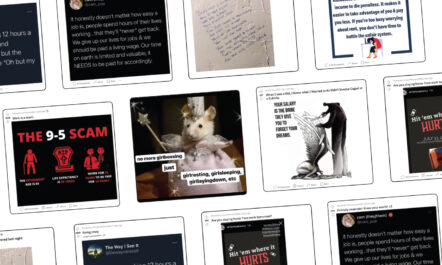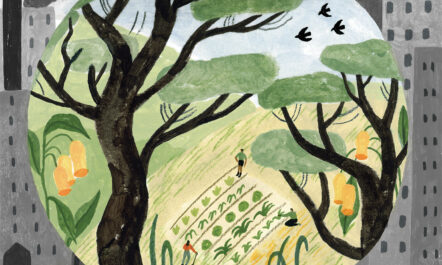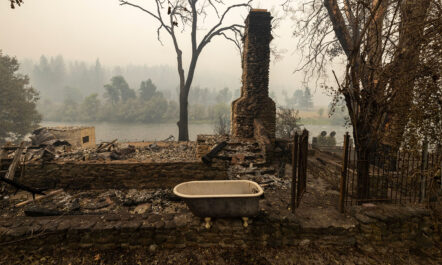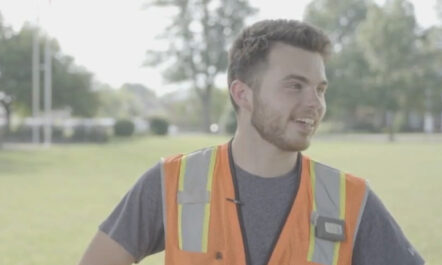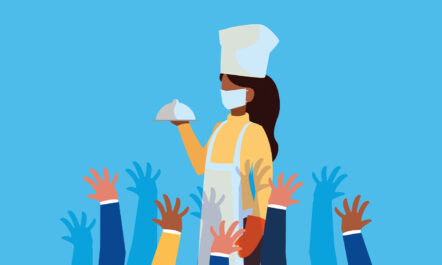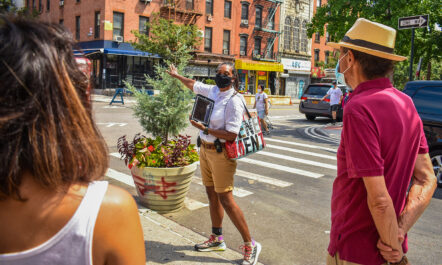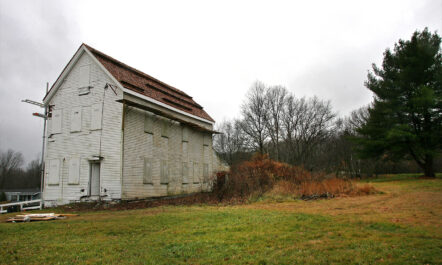It’s time to stop believing the lie that gentrification is inevitable.
Economy
Building Homes and Community for Arizona Youth
Eco-friendly tiny houses offer safety, stability, and savings.
How Central Americans Expanded the U.S. Labor Movement
Guatemalan and Salvadoran immigrants helped organize far-reaching workers’ rights campaigns in industries that mainstream unions had thought to be untouchable.
Black Farming Projects Look to Restore Historical Land Losses
Black and other farmers of color are seeing a restoration of land that was stolen or cheated from them as a key step to strengthening their economic power.
What Student Loan Forgiveness Means
Experts on banking, public spending, and education policy look at the impact of Biden’s plan.
The Immigrant Workers Disrupting the Cleaning Industry
New York City’s Liberty Cleaners co-created an innovative training program that’s providing the skills to bring about their vision of the gig economy.
Stop Asking Me What I Do For Work
“When I think of the many ways we—laborers, neighbors, people in community with one another—are failing each other, I think first and foremost of the institution of work as we know it.”
Why Doing Nothing Is Good For You
The Dutch art of niksen—intentionally doing nothing, letting the mind wander—is much needed in our over-scheduled lives.
From The Current Issue
The Past, Present, and Future of Work
Our work environment is deeply dysfunctional. But making systemic change requires understanding how we got here.
From The Current Issue
Undergrads Fight for Their Right to Organize
Long-underpaid undergrad students who work on campus are increasingly seeing the value of their labor and organizing unions.
From The Current Issue
Can Unions Still Transform the Workplace?
Young workers, women, and people of color are combining digital innovation with old-school face-to-face organizing to build a new labor movement.
From The Current Issue
The Café That’s Upending Capitalism
Cafe Euphoria isn’t just another co-op. Its trans and gender-nonconforming owners are pursuing a vision of radical equality.
From The Current Issue
The Great Resignation Is Actually a Great Reimagining by Workers
And it’s not over.
From The Current Issue
Child Care: Invaluable and Undervalued
Direct payments to home-based child care providers can sustain them and the essential work they do to care for the children of working Americans.
From The Current Issue
The Future of Work Is No Work
Activists have long suggested that oppressive institutions should be abolished rather than reformed. The same could be said about labor.
From The Current Issue
Degrowth Gains Ground
Degrowth invites us to envision a much deeper societal transition than simply swapping energy sources to maintain the status quo.
The Work of Radical Frugality
Frugality isn’t just a virtue practiced by bygone generations. It can also be a break with an all-consuming capitalist system.
Taking Action on Climate Change Requires Coming Together
Climate action, racial justice, and economic reform ultimately all have the same end goal. Our movements should unite behind it.
To Help the Economy and Addiction Problems, West Virginians Draw From Within
Solving the Mountain State’s endemic issues means a return to old-fashioned virtues of neighborliness and diligence.
How Wildfires Impact California’s Housing Crisis
Wildfires and the destruction they cause have become a societal problem. Addressing this issue comprehensively should include both short-term and long-term solutions.
A Growing Wave of Unionizing Drives Change
From Amazon to Starbucks, employees are demanding better pay and working conditions from companies that have long had a free hand to maximize profits at any cost.
The Underground Economy of Unpaid Care
More than 40 million people provide unpaid care for adults. My mother was one of them.
Collective Bargaining for the Workplace and Democracy
Rubynell Walker-Barbee shares her story of service workers organizing in Georgia.
Walking Tours Get a Radical Makeover, Focusing on People’s Histories
Instead of kings, plutocrats, and generals, a new kind of historical walking tour focuses on the people they repressed, and tells a more complete story.
The Romantic, Failed Experiments of American Utopias
The history of American communes is one of imperfect people trying to make a perfect place.
Help Fund Powerful Stories to Light the Way Forward
Donate to YES! today.
